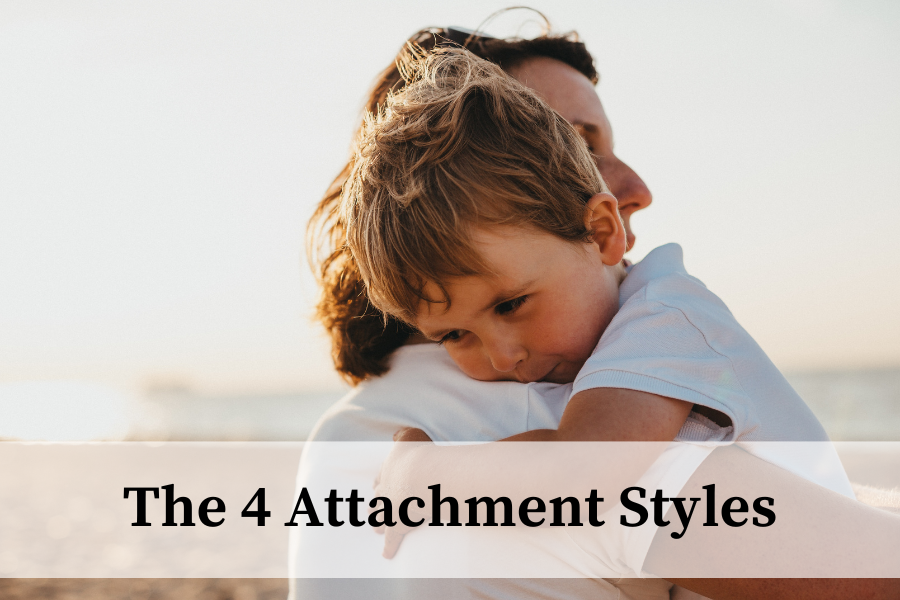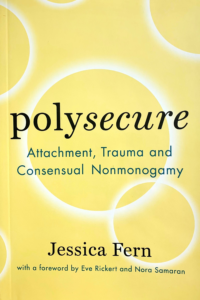Attachment styles dictate our behaviour in relationships. Our attachment style is dependent on how well our need for attachment was met in childhood.
Attachment theory dictates our need to form close bonds with our caregivers as children. How well this need is met establishes our attachment style, which then affects all our adult relationships moving forward.
I first learned about attachment styles in 11th-grade psychology, as well as in university, but began reading books and learning more about the subject after my first relationship. I had always dated people with an avoidant attachment, which as a fairly anxious disorganized was terrible for me.
Learning your attachment style can allow you to be more conscious of your behaviours and work towards a more secure attachment. It can also let you know what styles you should be wary of dating, as they may further trigger your unhealthy attachment.
In this post, I’ll outline attachment theory and the four attachment styles, secure, anxious, avoidant, and disorganized, and give some recommended books on the topic.
This post is all about attachment styles!
What is Attachment Theory?
Attachment theory was originally developed by John Bowlby, a British psychoanalyst. He sought to understand the distress infants experienced when separated from their caregivers. Through observation, he determined that infants would go to great lengths to be reunited with their caregivers. He speculated that these behaviours may serve an evolutionary function. Infants need their caregivers to survive, they’re entirely unable to provide for themselves, meaning without their caregivers, they would die. These attachment behaviours are a product of natural selection, meant to keep an infant’s caregivers close by to survive.
A child is constantly asking themselves, “Is my attachment figure nearby and attentive? Do I feel safe?” If the answer is yes, the child feels secure to play and explore their environment. If the answer is no, the child begins to feel anxious and may exhibit attachment behaviours such as desperately searching or crying. These behaviours will continue until either the child returns to proximity with the caregiver, or the child becomes worn down in cases of prolonged separation or loss. In this case, the child experiences intense despair or even depression.
A child’s attachment style is dictated by how well these attachment needs are met. Children whose caregivers were mostly responsive in their first year of life end up with a secure attachment. Children whose caregivers were inconsistent or unresponsive to their needs result in an anxious or avoidant attachment style
The Four Attachment Styles
Secure
Secure is the most common of all the attachment styles.
People with this attachment are comfortable openly expressing their emotions. They don’t run in the face of conflict, they address issues head-on. Secures are comfortable relying on their partner and having their partner rely on them. They tend to be open and honest in their connections and value emotional intimacy. People with a secure attachment are comfortable in relationships, but also on their own. They don’t rely on others for validation or approval and have a healthy sense of esteem.
Anxious / Preoccupied
People with anxious attachment are more reliant on their partners to feel okay. They deeply fear abandonment and often worry their partner isn’t as invested in the relationship as they are. The thought of being alone causes a lot of anxiety and they’ll do anything to feel close to their partner. They tend to hold others in a higher regard than themselves and struggle with self-worth. They seek a lot of approval and support from their partner and feel a lot of stress and anxiety when this need goes unmet.
Avoidant / Dismissive
The avoidant type views themselves as independent and self-sufficient. They’re not the type to rely on others or ask for help. They keep their emotional distance and tend not to communicate their feelings. Avoidants also have a high sense of self-esteem and don’t like others to rely on them. They don’t feel they need to be in a relationship to feel complete and don’t seek validation or approval from others.
Disorganized / Fearful-Avoidant
Disorganized is the most complicated and uncommon of attachment styles. It contains aspects of both the anxious and avoidant styles.
People with disorganized attachment display inconsistent behaviours in their relationships. They desire emotional closeness but tend to push it away. They have a hard time trusting others and fear getting hurt. Relationships are both a source of longing and fear, as this attachment style is formed by inconsistent and even untrustworthy attachment figures. People with this style have a hard time regulating their emotions and tend to avoid relationships out of fear.
Disorganized attachment is generally a result of childhood trauma or abuse, but can also be caused later in life by an abusive adult relationship. It occurs when the attachment figure, a source of safety, becomes a source of fear.
Keep in mind not everyone fits perfectly into one category, even those who are secure tend to lean either more anxious or avoidant. If you’re unsure which attachment style you are, you can take the Attachment Style Quiz to find out!
How Your Attachment Style Affects Your Relationships
Our attachment style has a huge impact on our adult relationships. Have you ever noticed all your relationships seem to repeat the same pattern? Maybe you cling on to your partners, afraid to be abandoned and they remain distant and detached, always asking for more space. Maybe you push people away as soon as they get close, afraid to let anyone in. This is your attachment style at play.
Our attachment style also dictates who we’re attracted to. Anxious and avoidant attachments are almost always drawn to each other. Though, without a lot of work on both ends this pairing can often be unhealthy. The avoidant triggers the other’s anxious attachment by being distant, causing the anxious partner to chase after the avoidant. The anxious partner then further pushes the avoidant away, causing a constant cycle of back and forth.
People with a secure attachment, on the other hand, can partner with any attachment style. A secure person helps to stabilize another’s unhealthy attachment because they don’t react in the way the opposing attachment style would. So, rather than running when their partner is being clingy or putting too much expectation on them, the secure partner responds healthily through communication. This calms the anxious partner and makes them feel more secure.
Those with a disorganized attachment are best to date those who are secure, as both anxious and avoidant styles can trigger their attachment wounds. Though, with the desire and determination to heal unhealthy attachment, any styles are capable of having a healthy relationship.
Books On Attachment
This section contains affiliate links, which means I’ll receive a commission if you purchase through my link, at no extra cost to you. Please read the full disclosure for more information.
Attached
By Amir Levine & Rachel Heller
I’d highly recommend Attached for everyone, but especially those with anxious attachments! It covers the science behind attachment theory and gives helpful advice on how to apply it to your relationships. It also contains relevant activities you can utilize to better understand your attachment.
I read Attached not too long ago and it was incredibly useful in better understanding and overcoming my anxious tendencies. It’s a great starting point in better understanding attachment. The only downside is that it does not cover trauma or disorganized attachment.
Polysecure
By Jessica Fern
 Photo by Me
Photo by Me
I can’t talk about attachment without mentioning Polysecure. Though Polysecure covers attachment from a non-monogamous viewpoint, its principles can be applied to any relationship style. It gives an in-depth look at each of the attachment styles, including disorganized, covers how trauma impacts our attachment, gives a brief overview of boundaries, and outlines how we can work to be more secure in our relationships. I honestly can’t gush about this book enough, it truly is a must-read when it comes to understanding attachment.
Related Post: What is a Polyamorous Relationship?
The Power of Attachment
By Diane Poole Heller
The Power of Attachment covers how trauma impacts our attachment style. Dr. Heller, a pioneer in attachment theory and trauma resolution outlines how traumatic experiences affect ourselves, the world around us, and our connections with others. She teaches you how to restore connections lost to trauma, feel whole and embodied in yourself, integrate wounded parts of yourself, emerge from fear or grief, and reclaim your inner nature.
As you can see, our attachment style has a huge effect on how we connect to others and how our relationships play out. Keep in mind, no one is stuck with an unhealthy attachment. Work towards understanding attachment and cultivating healthier behaviours, and you’re sure to be on your way to becoming more secure.
Post by Morgan Peters
Other Posts You May Like:
Shadow Work Prompts & Explanation
What is Ethical Non-Monogamy & Why is It on the Rise?
What is Spirituality & How Does It Differ From Religion?
Sources:
Cherry, Kendra. “How Attachment Theory Works.” Verywell Mind, Verywell Mind, 22 Feb. 2023, https://www.verywellmind.com/what-is-attachment-theory-2795337.
“A Brief Overview of Adult Attachment Theory and Research: R. Chris Fraley.” A Brief Overview of Adult Attachment Theory and Research | R. Chris Fraley, 2018, http://labs.psychology.illinois.edu/~rcfraley/attachment.htm.
“Attachment Styles and Their Role in Adult Relationships.” Attachment Project, 6 Apr. 2023, https://www.attachmentproject.com/blog/four-attachment-styles/.
“Disorganized Attachment Style: Everything You Need to Know.” Attachment Project, 6 Apr. 2023, https://www.attachmentproject.com/blog/disorganized-attachment/.
